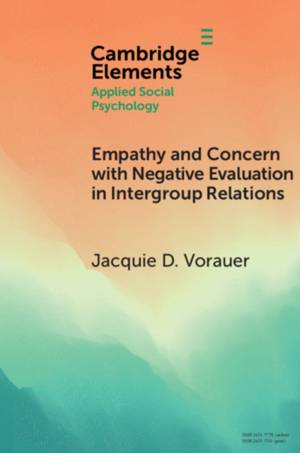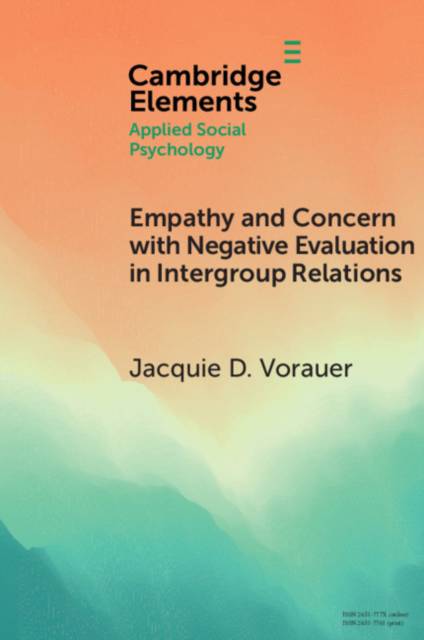
- Afhalen na 1 uur in een winkel met voorraad
- Gratis thuislevering in België vanaf € 30
- Ruim aanbod met 7 miljoen producten
- Afhalen na 1 uur in een winkel met voorraad
- Gratis thuislevering in België vanaf € 30
- Ruim aanbod met 7 miljoen producten
Zoeken
Empathy and Concern with Negative Evaluation in Intergroup Relations
Implications for Designing Effective Interventions
Jacquie D Vorauer
€ 31,95
+ 63 punten
Omschrijving
Widespread belief in the benefits of empathy and its healing power is evident in public discourse and across diverse news and social media outlets around the world. Yet research reveals that empathy can sometimes have adverse effects on individuals' intergroup attitudes and behavior. A link between empathy and concerns with negative evaluation helps explain why empathy can backfire. Accordingly, using the minimization of evaluative concerns as an organizing principle, the author makes recommendations regarding when and how to encourage empathy in intergroup contexts, so that its potential to foster stronger social bonds across group boundaries can be fully realized.
Specificaties
Betrokkenen
- Auteur(s):
- Uitgeverij:
Inhoud
- Aantal bladzijden:
- 75
- Taal:
- Engels
- Reeks:
Eigenschappen
- Productcode (EAN):
- 9781108713108
- Verschijningsdatum:
- 7/02/2019
- Uitvoering:
- Paperback
- Formaat:
- Trade paperback (VS)
- Afmetingen:
- 152 mm x 229 mm
- Gewicht:
- 108 g

Alleen bij Standaard Boekhandel
+ 63 punten op je klantenkaart van Standaard Boekhandel
Beoordelingen
We publiceren alleen reviews die voldoen aan de voorwaarden voor reviews. Bekijk onze voorwaarden voor reviews.











